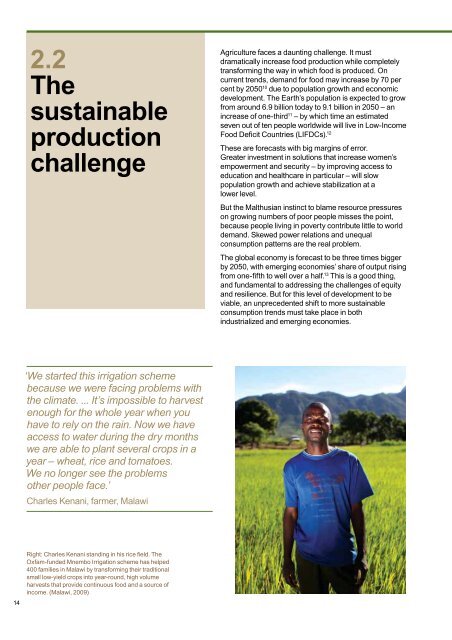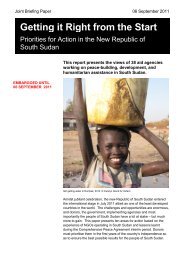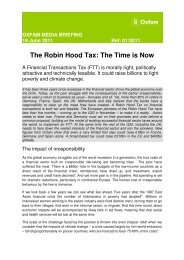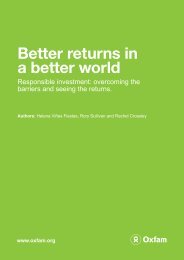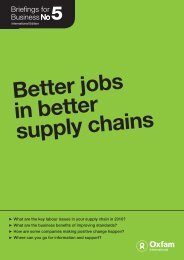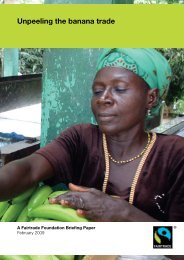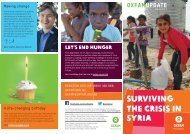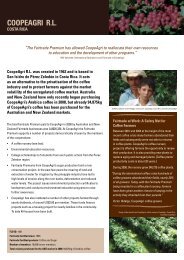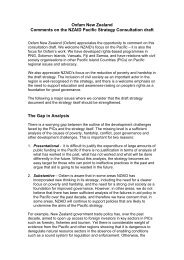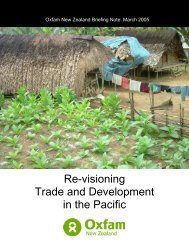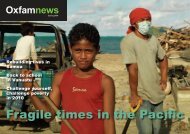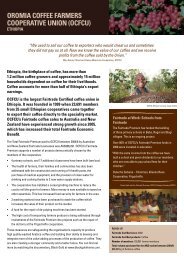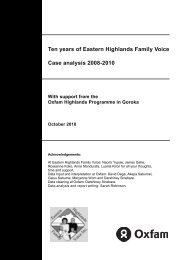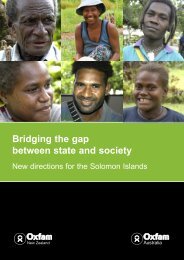Growing a Better Future - Oxfam International
Growing a Better Future - Oxfam International
Growing a Better Future - Oxfam International
- No tags were found...
Create successful ePaper yourself
Turn your PDF publications into a flip-book with our unique Google optimized e-Paper software.
2.2ThesustainableproductionchallengeAgriculture faces a daunting challenge. It mustdramatically increase food production while completelytransforming the way in which food is produced. Oncurrent trends, demand for food may increase by 70 percent by 2050 10 due to population growth and economicdevelopment. The Earth’s population is expected to growfrom around 6.9 billion today to 9.1 billion in 2050 – anincrease of one-third 11 – by which time an estimatedseven out of ten people worldwide will live in Low-IncomeFood Deficit Countries (LIFDCs). 12These are forecasts with big margins of error.Greater investment in solutions that increase women’sempowerment and security – by improving access toeducation and healthcare in particular – will slowpopulation growth and achieve stabilization at alower level.But the Malthusian instinct to blame resource pressureson growing numbers of poor people misses the point,because people living in poverty contribute little to worlddemand. Skewed power relations and unequalconsumption patterns are the real problem.The global economy is forecast to be three times biggerby 2050, with emerging economies’ share of output risingfrom one-fifth to well over a half. 13 This is a good thing,and fundamental to addressing the challenges of equityand resilience. But for this level of development to beviable, an unprecedented shift to more sustainableconsumption trends must take place in bothindustrialized and emerging economies.‘We started this irrigation schemebecause we were facing problems withthe climate. ... It’s impossible to harvestenough for the whole year when youhave to rely on the rain. Now we haveaccess to water during the dry monthswe are able to plant several crops in ayear – wheat, rice and tomatoes.We no longer see the problemsother people face.’Charles Kenani, farmer, Malawi14Right: Charles Kenani standing in his rice field. The<strong>Oxfam</strong>-funded Mnembo Irrigation scheme has helped400 families in Malawi by transforming their traditionalsmall low-yield crops into year-round, high volumeharvests that provide continuous food and a source ofincome. (Malawi, 2009)


